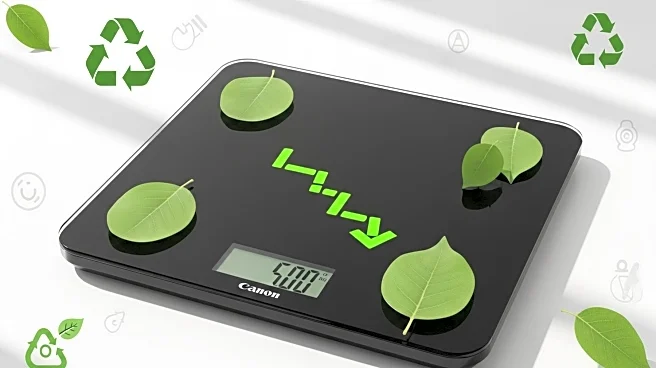What's Happening?
Vestiaire Collective, a second-hand fashion platform, has announced the sale of carbon credits as part of its strategy to highlight the environmental benefits of purchasing pre-loved items. The company is converting CO2 savings, achieved through the purchase of second-hand clothing and accessories instead of new ones, into carbon credits. This initiative aims to demonstrate the measurable environmental benefits of its business model and serves as a financial move, with 55,000 certified carbon credits offered for sale. The revenue from these sales will be reinvested in activities that strengthen the robustness and volume of emissions avoided by Vestiaire Collective, such as catalogue curation and impact marketing.
Why It's Important?
The sale of carbon credits by Vestiaire Collective represents a significant step in the second-hand fashion industry, emphasizing the environmental impact of choosing pre-loved items over new ones. This initiative not only serves as a marketing tool but also highlights the potential for financial innovation within the sector. By quantifying the emissions avoided, Vestiaire Collective is setting a precedent for other companies in the industry to follow, potentially leading to broader adoption of similar practices. This could result in increased consumer awareness and demand for sustainable fashion options, benefiting both the environment and the second-hand market.
What's Next?
Vestiaire Collective's approach raises questions about the methodology used to calculate the carbon credits, as it excludes certain environmental impacts associated with the platform's operations. The company may face scrutiny from stakeholders and environmental groups regarding the transparency and accuracy of its claims. Additionally, the sale of carbon credits could prompt other second-hand platforms to explore similar initiatives, potentially leading to increased competition and innovation in the sector. As the market for sustainable fashion continues to grow, Vestiaire Collective's strategy may influence industry standards and consumer expectations.
Beyond the Headlines
The initiative by Vestiaire Collective to sell carbon credits highlights the ethical and environmental dimensions of the second-hand fashion industry. By focusing on the emissions avoided through the purchase of pre-loved items, the company is challenging traditional perceptions of fashion consumption and promoting a circular economy. This approach may encourage consumers to consider the broader impact of their purchasing decisions, leading to a shift in cultural attitudes towards sustainability and responsible consumption. As the industry evolves, companies like Vestiaire Collective could play a pivotal role in driving long-term changes in consumer behavior and industry practices.








